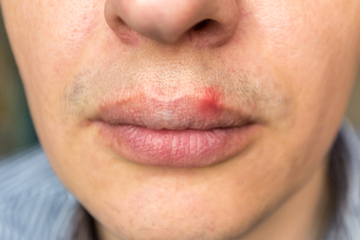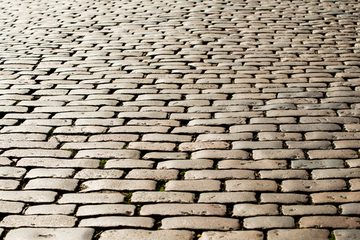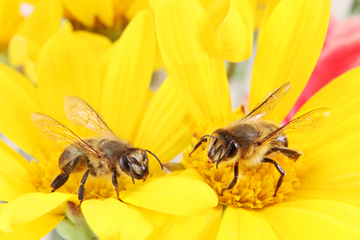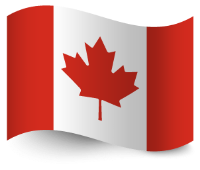Coronavirus for Cold Sore Sufferers
 By now the new novel coronavirus, Covid-19, needs no introduction; even for those of us who have not yet come into direct contact with it, it has begun to define all of our lives. The chances are that in the past few weeks you have already learnt more information about coronavirus than you have acquired about the herpes virus across a lifetime suffering from cold sores. Yes, the extraordinary measures that have been taken may sometimes feel draconian, but there is consensus among the experts: they are necessary.
By now the new novel coronavirus, Covid-19, needs no introduction; even for those of us who have not yet come into direct contact with it, it has begun to define all of our lives. The chances are that in the past few weeks you have already learnt more information about coronavirus than you have acquired about the herpes virus across a lifetime suffering from cold sores. Yes, the extraordinary measures that have been taken may sometimes feel draconian, but there is consensus among the experts: they are necessary.
And, yes, coronavirus is undoubtedly frightening even if we know that we as individuals are statistically likely to be fine – with around 45% of people who contract the virus showing no or only mild symptoms and the mortality rate among the healthy population relatively low. However, things are rather different for older people, with the over 70s and over 80s at particular risk. Furthermore, we also know that those with the following underlying health conditions are more likely to experience severe symptoms:
Read more: Coronavirus for Cold Sore Sufferers
Pesticides Have Bees on their Knees
 It is safe to say that humans would be nowhere without bees. Not only do they give us honey and make propolis, nature’s finest cold sore treatment, they have also played an essential role in the pollination of the world’s plants for more than 100 million years.
It is safe to say that humans would be nowhere without bees. Not only do they give us honey and make propolis, nature’s finest cold sore treatment, they have also played an essential role in the pollination of the world’s plants for more than 100 million years.
In fact, the world’s approximately 25,000 bee species are essential to the procreation of around 80% of earth’s plant species, so we should all be concerned that bees are currently experiencing an unprecedented period of challenge.
Quite simply, without bees to perform their pollination work, humans would be reliant on a very narrow diet and would also suffer a shortage of medicines. This not only includes propolis, nature’s number one cold sore treatment, but also morphine and aspirin, which are derived from bee-pollinated crops.
Read more: Pesticides Have Bees on their Knees
Cold Sore or Ingrown Hair?
 If you have only recently started developing cold sores, it can be difficult to tell the difference between an outbreak of HSV-1 and other causes of lesions, discomfort or discolouration – for example, impetigo, acne, dermatitis or canker sores.
If you have only recently started developing cold sores, it can be difficult to tell the difference between an outbreak of HSV-1 and other causes of lesions, discomfort or discolouration – for example, impetigo, acne, dermatitis or canker sores.
In the post below, Herstat, makers of a clinically proven propolis-based cold sore treatment, take a look at how to differentiate between a cold sore and another unsightly annoyance – an ingrown hair.
Spotting an ingrown hair
Hair should and, fortunately, most of the time does, grow upwards from the hair follicle and out and away from the body. However, hair can also curve back around and grow back into the follicle, burrowing under the skin. This can cause irritation and inflammation and lead to the development of the blisters which are so regularly mistaken for cold sores.
Read more: Cold Sore or Ingrown Hair?
Cold sore on the cobbles – Will the Corrie Star Remember her Cold Sore Cream?
 The recent plight of Coronation Street actress Julia Goulding may be familiar to any person who has ever attempted to creatively conceal a cold sore. After appearing on the iconic ITV Manchester soap in an episode in which her character, Shona Ramsey, was ailing in a coma, she received a barrage of messages on Twitter asking her one important question: had she had lip fillers?
The recent plight of Coronation Street actress Julia Goulding may be familiar to any person who has ever attempted to creatively conceal a cold sore. After appearing on the iconic ITV Manchester soap in an episode in which her character, Shona Ramsey, was ailing in a coma, she received a barrage of messages on Twitter asking her one important question: had she had lip fillers?
Some of the Tweets she received included the following:
"Has Shona had lips done while she been in a coma?"
"When did Shona have time to get her lips done, while she was in a coma?" commented another viewer.
"Didn’t realise they performed lip fillers in A&E," commented one.
However, the actress magnanimously attempted to clarify the situation for confused fans, with her explanation a familiar one to any person who has ever had to rely on cold sore cream and creative make-up in order to negotiate their way through an outbreak.
Read more: Cold sore on the cobbles – Will the Corrie Star Remember her Cold Sore Cream?
Bees Proving Strangely Divisive
 Who knew that bees could be so divisive? The past week has seen bees the subject of debates about biodiversity, habit destruction and more.
Who knew that bees could be so divisive? The past week has seen bees the subject of debates about biodiversity, habit destruction and more.
Firstly, there were headlines about bee populations being destroyed by the sheer number of almond trees needed to meet the currently unprecedented demand for almond milk.
There are some problems with this contention. For a start, the story had the effect of blaming consumers instead of the corporations responsible for the farming. It also failed to address the problem of pesticides; most non-organic almond farms use large quantities of the glyphosate pesticide Roundup, which, to put it mildly, has proved controversial, not least because of its impact on bee populations. Still, this didn’t stop some commentators from attributing the problem to vegans.
Read more: Bees Proving Strangely Divisive
 By now the new novel coronavirus, Covid-19, needs no introduction; even for those of us who have not yet come into direct contact with it, it has begun to define all of our lives. The chances are that in the past few weeks you have already learnt more information about coronavirus than you have acquired about the herpes virus across a lifetime suffering from cold sores. Yes, the extraordinary measures that have been taken may sometimes feel draconian, but there is consensus among the experts: they are necessary.
By now the new novel coronavirus, Covid-19, needs no introduction; even for those of us who have not yet come into direct contact with it, it has begun to define all of our lives. The chances are that in the past few weeks you have already learnt more information about coronavirus than you have acquired about the herpes virus across a lifetime suffering from cold sores. Yes, the extraordinary measures that have been taken may sometimes feel draconian, but there is consensus among the experts: they are necessary.






 It is safe to say that humans would be nowhere without bees. Not only do they give us honey and make
It is safe to say that humans would be nowhere without bees. Not only do they give us honey and make  If you have only recently started developing cold sores, it can be difficult to tell the difference between an outbreak of HSV-1 and other causes of lesions, discomfort or discolouration – for example, impetigo, acne, dermatitis or canker sores.
If you have only recently started developing cold sores, it can be difficult to tell the difference between an outbreak of HSV-1 and other causes of lesions, discomfort or discolouration – for example, impetigo, acne, dermatitis or canker sores. The recent plight of Coronation Street actress Julia Goulding may be familiar to any person who has ever attempted to creatively conceal a cold sore. After appearing on the iconic ITV Manchester soap in an episode in which her character, Shona Ramsey, was ailing in a coma, she received a barrage of messages on Twitter asking her one important question: had she had lip fillers?
The recent plight of Coronation Street actress Julia Goulding may be familiar to any person who has ever attempted to creatively conceal a cold sore. After appearing on the iconic ITV Manchester soap in an episode in which her character, Shona Ramsey, was ailing in a coma, she received a barrage of messages on Twitter asking her one important question: had she had lip fillers? Who knew that bees could be so divisive? The past week has seen bees the subject of debates about biodiversity, habit destruction and more.
Who knew that bees could be so divisive? The past week has seen bees the subject of debates about biodiversity, habit destruction and more.




